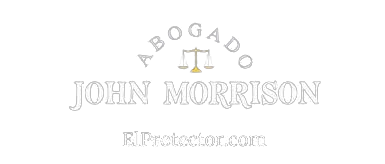The Role of Medical Evidence in Personal Injury and Workers’ Compensation Claims
Medical Evidence is pivotal in personal injury and workers’ compensation claims. It establishes the connection between injuries/illnesses and legal claims, determines damages, and ensures fair compensation. This article explores the importance of medical Evidence in these cases, covering its types, legal standards, and evaluation criteria.
Understanding its role is crucial for claimants and legal professionals, providing insights to navigate the complexities and increase the chances of a just outcome.
Before diving in, here are some concepts necessary, according to the Legal Information Institute by Cornell Law School and Law Insider:
- Personal Injury: Personal injuries include every variety of damage to a person’s body, emotions, or reputation, as contradistinguished from injury to property rights. Some examples are Automobile accidents, Workplace accidents, Assault, Medical expenses, Lost wages, Pain and suffering, etc.
- Worker’s compensation: Workers’ compensation laws protect people who become injured or disabled while working at their jobs.
- Medical Evidence: it refers to the evidence of medically qualified persons, including psychiatrists, which is admissible to furnish the court with information outside the knowledge of a judge, bench, or jury.
- Claim: Claim means a written assertion of an individual’s entitlement to benefits under the FECA (The Federal Employees’ Compensation), submitted in a manner authorized by this part.
What documents are necessary to pursue a Personal Injury and Workers’ Compensation Claim?
To pursue a Personal Injury or Workers’ Compensation Claim, you will need certain documents:
- Incident Reports: Reports filed immediately after the accident or injury, such as police reports, incident reports from the workplace, or accident reports.
- Medical Records: Records of medical treatment received, including hospital records, doctor’s notes, diagnostic tests, prescriptions, and rehabilitation documentation.
- Witness Statements: Statements from individuals who witnessed the accident or incident, providing their account of what transpired.
- Employment Records: Relevant employment records, such as timesheets, work schedules, or employment contracts, to establish the employment relationship and support workers’ compensation claims.
- Financial Documents: Documents that demonstrate the economic impact of the injury, such as medical bills, invoices, receipts, and proof of lost wages.
Remember that it is essential to gather the evidence as the problem arises to build a successful case.
Why is the Medical Evidence important while pursuing a Personal Injury and Workers’ Compensation Claim?
Medical evidence is significant when claiming personal injury or workers’ compensation. It helps to prove that your injuries were caused by the accident or unsafe conditions at work.
Medical evidence also helps determine how much compensation you should receive for your injuries and their impact on your life. It includes things like medical records, test results, and doctor reports. This evidence supports your case and shows that your injuries are severe and directly connected to the accident or workplace conditions.
What are some common mistakes when building up the case regarding the Medical Evidence?
Some common mistakes when building a case regarding medical evidence include the following:
- Inadequate Medical Documentation: Please gather comprehensive and detailed medical records to ensure the claim is valid. Only complete or complete medical documentation may lead to doubts about the severity or causation of the injuries.
- Delayed Medical Treatment: Delaying or failing to seek prompt medical treatment after an accident or workplace injury can raise doubts about the seriousness of the injuries or their connection to the incident. It is essential to document and address any injuries or symptoms promptly.
- Lack of Expert Opinions: Neglecting to obtain expert opinions from medical professionals can weaken the claim. Expert opinions provide specialized insights and support the link between the injuries and the incident, adding credibility to the case.
- Inconsistencies in Medical History: Opposing parties can exploit discrepancies or gaps in the claimant’s medical history to challenge the validity or causation of the injuries. Providing a complete and accurate medical history is crucial to avoid undermining the claim.
- Noncompliance with Treatment: Failing to follow prescribed medical treatments or rehabilitation plans can undermine the claim. Noncompliance may be interpreted as a lack of seriousness or impede the recovery process, leading to questions about the extent of the injuries.
If you’re facing a situation where you need help with your case, it’s a good idea to contact a lawyer specializing in personal injury or workers’ compensation claims.
They can guide you through the process and help you gather all the crucial medical evidence to strengthen your case. Doing things the right way increases your chances of getting fair compensation for your injuries and how they affect your life. At John Morrison Law, we’re here to offer the assistance you need every step of the way.
